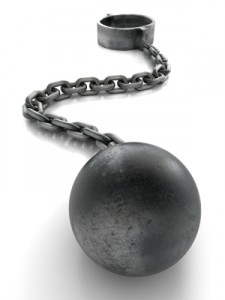 Whether you should file bankruptcy or divorce first depends on several factors. First, consider whether or not your spouse wants to file bankruptcy as well. The court filing fee is the same for individual bankruptcy filers and joint bankruptcy filers, in which a person files bankruptcy with their spouse. If both of you intend to file bankruptcy eventually then you may want to do it before you get divorced in order to avoid this added expense. You’ll save money on the court filing fee and on attorney’s fees.
Whether you should file bankruptcy or divorce first depends on several factors. First, consider whether or not your spouse wants to file bankruptcy as well. The court filing fee is the same for individual bankruptcy filers and joint bankruptcy filers, in which a person files bankruptcy with their spouse. If both of you intend to file bankruptcy eventually then you may want to do it before you get divorced in order to avoid this added expense. You’ll save money on the court filing fee and on attorney’s fees.
Second, consider whether you need to file Chapter 7 bankruptcy or Chapter 13 bankruptcy. Chapter 7 bankruptcy cases last three to four months. These types of legal proceedings may allow to discharge some or all of your debt fairly quickly. However, Chapter 13 bankruptcy cases last three to five years. You probably don’t want to be stuck in a bankruptcy case with an ex-spouse for that long. However, eligibility for Chapter 7 bankruptcy is calculated using household income. You may not be eligible for Chapter 7 bankruptcy with both your income and your spouses, but you may be eligible for a Chapter 7 discharge based upon your income alone. In this situation you may want to get divorced first.
Third, you should consider whether or not you have nonexempt property. Some bankruptcy exemptions are greater for joint filers than they are for single filers. For example, under the Federal Exemptions, joint filers have twice as much of the wild card exemption available than individual filers. This exemption can be used to protect any kind of property. Debtors who are completely exempt in a joint bankruptcy filing may have nonexempt property in an individual case, which can greatly increase the cost of obtaining a Chapter 7 discharge. How your exemptions are affected depends greatly upon the state in which you live. For more information about whether or not to file bankruptcy or divorce first, contact a local bankruptcy lawyer.